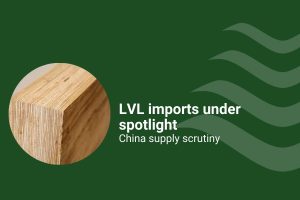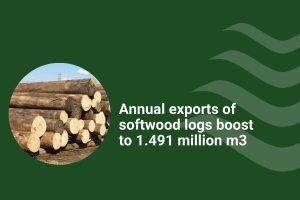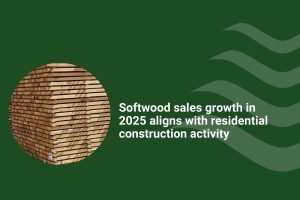Two announcements in early October will re-shape the local paper and fibre packaging industries for decades to come, with real implications for softwood plantation supply. All four of Australia’s paper and paperboard manufacturers were caught up in the merger and acquisition activity that IndustryEdge’s Tim Woods has described as little short of an October Revolution.
Woods’ summary of the two huge deals (and a smaller one that was all but dwarved by the others) is set out below.
In one long and remarkable week, Norske Skog announced the closure of its Albury newsprint mill and the sale of it and related assets to Visy. While, Orora sold its Australasian fibre business to Nippon Paper Industries (NPI), the owner of Australian Paper. Finally, Cleanaway picked up most of the assets of SKM Recycling.
For those in the forestry and wood product sector, consider this before deciding what happens in the paper sector is not that relevant to your business and operations. IndustryEdge calculates that in 2018-19, between them, Norkse Skog, Visy and Australian Paper utilised close to 5.3 million green metric tonnes of wood, about 80% of which was softwood resource.
Anything that happens with or related to that wood matters to the entire forestry and wood products supply chain.
IndustryEdge’s subscription service provides a detailed review of the transactions which can be accessed for free click here.
Norske Skog & Visy
On 4th October, Norske Skog announced the impending closure of Australasia’s largest newsprint mill, the 265,000 tonne per annum Albury Mill (NSW). It will close by the end of 2019.
Furthermore, it announced that it had sold the Albury mill and its related assets to Visy, Australia’s largest paperboard manufacturer for AUD85 million. After remediation, the assets will be transferred to Visy (probably at some point in the first quarter of 2020). Visy reportedly plans to undertake feasibility studies into options for use of the Albury site.
Eventually, for Norske Skog, it came down to just two options: a closure with no potential for future employment and regional economic activity, or a sale with opportunities for a different future.
It is not well understood, but Norske Skog exported almost half its newsprint production in 2018-19. Export returns were so indifferent in the first half of 2019 that Norske Skog curtailed newsprint production at all three mills in the region. It did so because it was unable to recover its production costs. In IndustryEdge’s view, a closure of the mill that can currently manufacture only newsprint had been inevitable for some time.
Orora & Nippon Paper transaction
Less than a week after the Norske Skog announcement, on 9th October, Orora announced the sale of its Australasian fibre business to Nippon Paper Industries for AUD1,720 million. The sale includes Orora’s:
· Fibre recycling business
· Recycled fibre manufacturing (Botany mill)
· Corrugated box manufacturing and distribution business
· Folding cartons business (mainly food and FMCG related)
· Bag and sack business (consumer and industrial)
· Laminated functional paper assets
In all, the transaction includes 25 manufacturing plants, 27 depots and involves more than 3,300 employees. The key to the transaction is Orora’s corrugated box business, including the Botany mill, which manufactures recycled grades of containerboard for use in making corrugated boxes.
The transaction is expected to complete in the first quarter of 2020.
Nippon Paper already owns Australian Paper, the supplier of Orora’s virgin Kraftliner for the manufacture of corrugated boxes. It also supplies Orora with other packaging materials. Australian Paper and Orora’s Australasian fibre packaging business were previously integrated.
IndustryEdge’s headline view is that the Orora-NPI/AP transaction is overdue from a rational stand-point. The re-integration of the supplies of containerboard materials must be expected to deliver synergies and unlock value.
Where do these developments leave the market?
While the closure of the newsprint mill at Albury might have been anticipated, the sale of the assets to Visy was less obvious, and Orora selling its Australasian fibre business (mainly corrugated boxes) to Nippon Paper took almost everyone by surprise.
While that might be the case, both transactions make a great deal of sense. They are nothing but rational for each of the companies involved.
Norske Skog sold a newsprint mill that would otherwise have been closed, while Visy acquired a potential manufacturing site that is perfectly located between Australia’s two largest markets, a sought-after 400,000 tonnes of wood per annum and a range of water and energy assets. IndustryEdge’s subscription service provides a detailed analysis of the Norske Skog / Visy deal, which can be accessed for free click here.
For its part, Orora got a good price for its Australasian fibre business and Nippon Paper-Australian Paper became a fully integrated supplier of fibre packaging materials, able to leverage the entire supply chain. IndustryEdge’s subscription service provides a detailed analysis of the Nippon Paper/Australia Paper arrangements, which can be accessed for free click here.
Australia will once again have two fully integrated fibre packaging suppliers. The other is the privately-owned Visy, which is the clear market leader in the corrugated box market in Australia.
In Tasmania, Norske Skog’s Boyer mill is more secure in our assessment. Already something of a ‘publication paper hub’, the mill will continue to manufacture newsprint, directory grade papers (yes there is still a market for that!) and the catalogue and magazine grade paper in which the mill has become expert.



